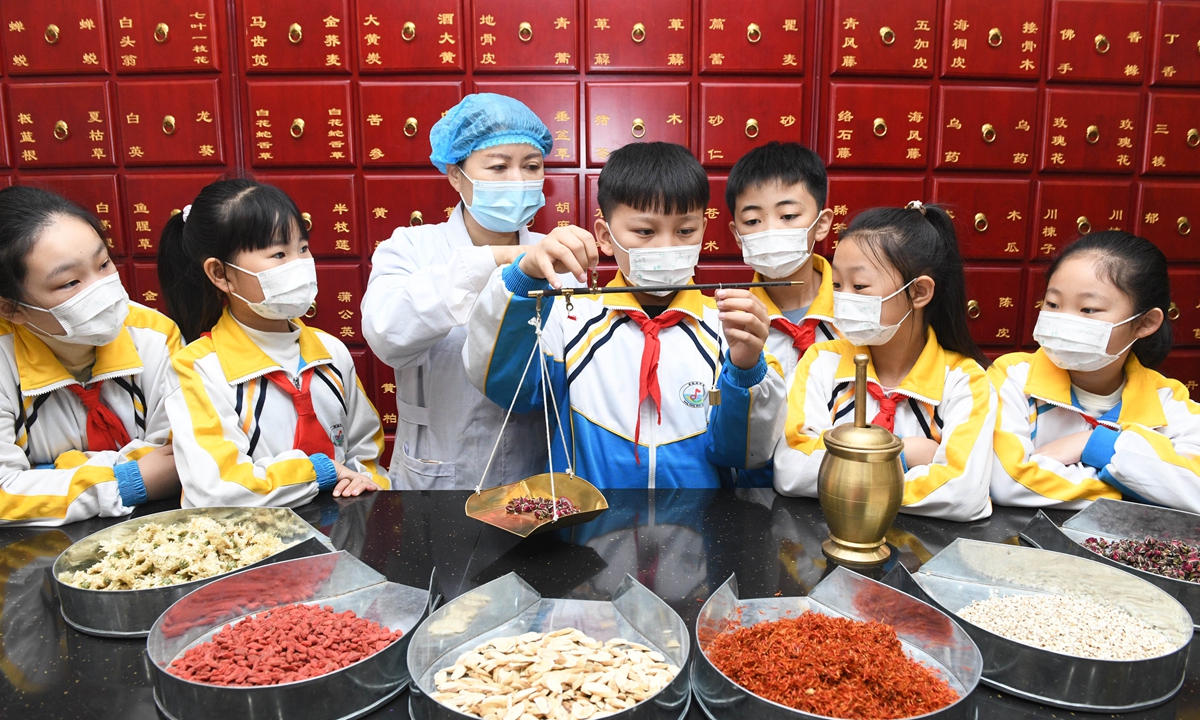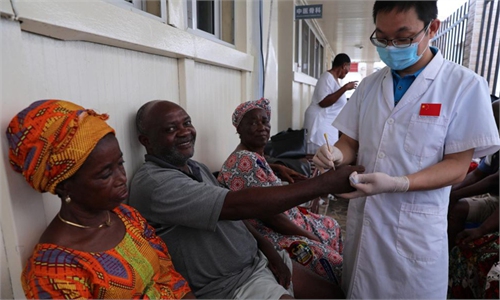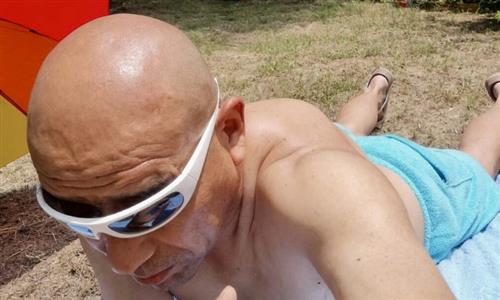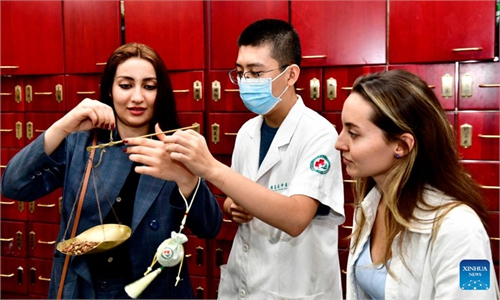
Pupils experience weighing traditional Chinese medicine (TCM) at a TCM store in Shijiazhuang, North China's Hebei Province, on October 20, 2022. The World Traditional Medicine Day falls on October 22, 2022. The practice of TCM has spread to 196 countries and regions, and China has signed specialized cooperation agreements on TCM with over 40 countries, regions and international organizations. Photo: CFP
Including a 10-second traditional Chinese medicine (TCM) experience hall, a total of 10 TCM projects were awarded on Wednesday for their innovative participation in international events.
The "Top 10 Typical Cases of the First TCM Culture International Communication Case" was published at the 2023 International Communication and Exchange Conference on TCM Culture in Beijing. The conference also witnessed the publication of new digital creative products and a new English version of the Chinese medical classic Bencao Gangmu, a masterpiece of ancient Chinese medicine, known as the "Encyclopedia of Ancient China."
Among all the cases, the 10-second TCM experience hall in the TCM exhibition area of the Beijing 2022 Winter Olympics and Paralympics stood out, as the Winter Olympics were the first time that TCM culture appeared at a world-class competition.
The 10-second TCM experience hall in the square area of the Beijing Winter Olympic Village popularized TCM culture among the more than 2,000 residents in the village during the Beijing Winter Olympics.
An electronic screen sitting in the hall center reviewed the history of TCM and China's 5,000-year civilization. A 3D visualized body meridian map enabled visitors to explore and understand the mysteries of the human body behind each acupuncture point or meridian in just 10 seconds.
After the Winter Olympics, the 10-second TCM experience hall also made targeted changes for the Paralympics to provide a warm and considerate visit experience for people with disabilities.
Wang Qi, an academician of the Chinese Academy of Engineering, emphasized at the conference that TCM and TCM culture are two different concepts. "TCM is a science at its core, but on the other side, it has cultural value."
He noted that TCM culture needs to be creatively transformed and innovatively developed, absorb contemporary scientific culture and strengthen interdisciplinary integration as the same time. "We need to build an ecological environment of coexistence and common prosperity of TCM culture and multiculturalism, enhance cultural awareness and confidence internally, and seek wider international cultural recognition externally."
In the past few years, experts have been increasingly valuing TCM culture and its creative transformation so it may have better international communication value.
Wu Binjiang, chairman of the organizing committee of the conference and the head of the Ontario College of Traditional Chinese Medicine, told the Global Times that while it originated from China, TCM has now gone global.
"What it needs is to integrate the culture with the economy, with cultures and other aspects of other countries, and to form distinctive Chinese medicine systems in order to positively contribute to the world."
"That's why we should actively communicate and cooperate with the international community, share the ideas and experiences of TCM, and promote the integration of TCM with other medical systems. At the same time, we should strengthen the scientific research and innovation of TCM, use modern technology to conduct in-depth studies on TCM, and improve its scientific value and effectiveness," Wu noted.



